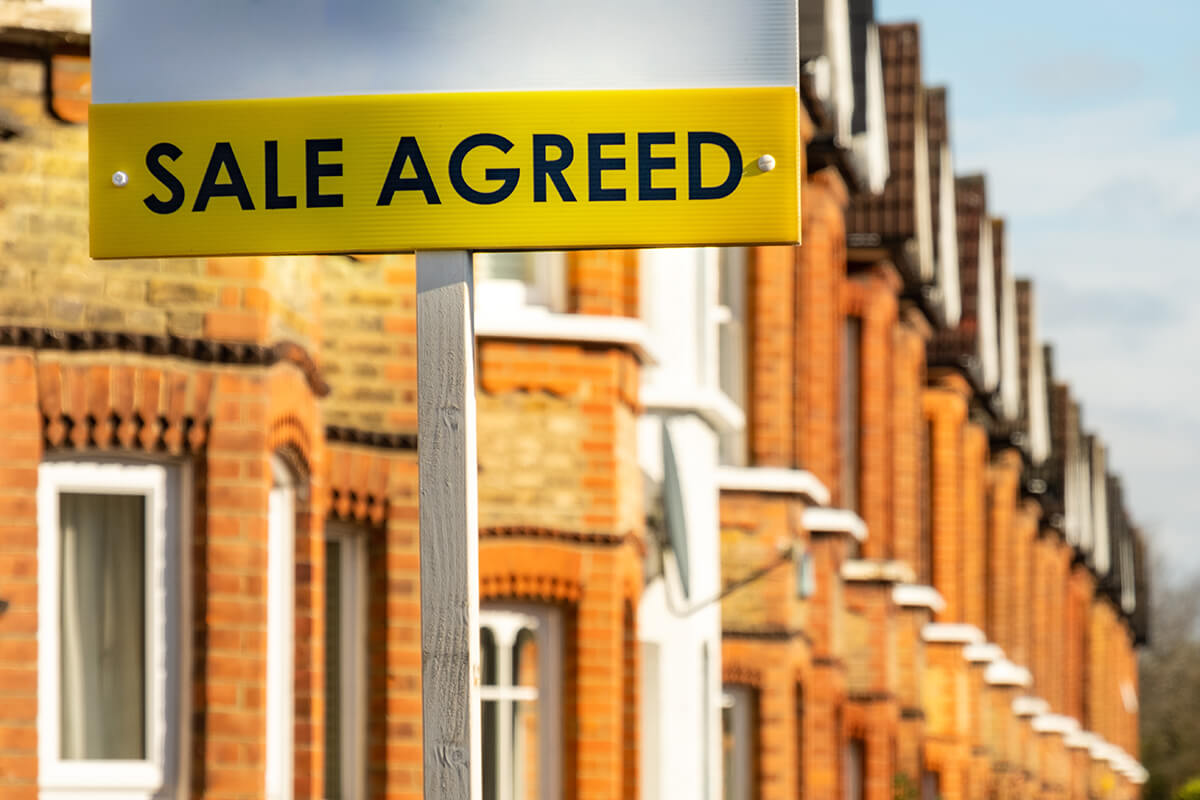‘Sale Agreed’ is the first official step in purchasing a property. Once the buyer has made a financial offer and the seller has accepted, a booking deposit will be paid. It is at this point that the sale is ‘agreed’ and both parties will receive a Memorandum of Sale to confirm. It’s important to note that ‘sale agreed’ does not mean the property is sold, though, as this isn’t the case until contracts have been formally exchanged.
The initial deposit is an expression of intent and is refundable up to the point where binding contracts are entered into. It’s routinely advised that buyers apply for a mortgage early on in the process, as this will qualify offers on properties and show real intent to buy.
Get legal support when the property sale is agreed
At this point, the buyer will also need to appoint a conveyancer or solicitor to handle the legal side of the property sale. It’s important for a buyer to be clear at this point on what the fees are and when they are payable. The sale agreed stage where deals are ‘subject to contract’ is important for buyers, as this allows their solicitors time to investigate and flag up any concerns.
It’s also the moment to settle on what fixtures and fittings will be included in the price of the property. This usually covers carpets and curtains, but it may also include anything else which the seller wishes to leave behind or that the buyer expects to be included, including light fixtures, appliances or even a cat in one bizarre case.
The importance of a property survey
The mortgage company will arrange a survey to carry out a valuation of the property once the sale is agreed upon and then take references. Occasionally following a survey, a more detailed inspection may be requested. The buyer may also wish to carry out an independent full structural survey, sometimes referred to as a Homebuyers Report. If everything comes back satisfactory then the lender will issue a firm mortgage offer.
This part of the process is an insecure time for all concerned. In theory, having the sale agreed upon does not stop another potential buyer from making a higher offer. The agent is obliged to pass this forward to the seller, however, this is frowned upon and known as ‘gazumping’ in the industry.
Until the sale is complete and contracts have been exchanged nothing is contractually binding for either party. At this point either party can walk away with no penalties. It also means that both parties can still negotiate the price at this stage, depending on the results from the survey and valuation.
When does a property sale become binding?
The point where the process becomes binding is once the formal contracts have been consented to and signed, and a larger contract deposit agreed and paid. The period of time this can take will vary from sale to sale but generally is around six to eight weeks from sale agreed to the exchange of contracts and completion.

